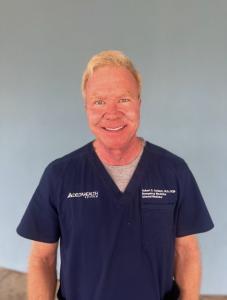Emergency Excellence: Dr. Robert Corkern’s Advanced Approaches to Critical Medical Care
Emergency Excellence: Dr. Robert Corkern’s Advanced Approaches to Critical Medical Care
Blog Article

When it comes to healthcare, lots of people frequently confuse disaster medication with internal medicine. Equally are vital branches of medicine, but they serve very different jobs in patient care. Dr Robert Corkern Mississippi, a renowned medical specialist, describes the important thing variations between both of these specialties, shedding light on their particular stresses and how each contributes to patient health. Knowledge the variation between crisis medication and central medicine can help patients better navigate their healthcare wants and make informed decisions.
The Target of Disaster Medicine
Crisis medication was created to give quick, acute care for patients facing urgent or deadly conditions. Disaster physicians work in hospitals' emergency departments (EDs), where they are often the first position of contact for persons encountering extreme incidents, strokes, heart episodes, or other medical emergencies. Dr. Corkern stresses that emergency medicine is about stabilization and quick decision-making. Crisis physicians are experienced to handle a wide variety of medical situations, often without having an in depth medical record of the in-patient, and should make fast judgments based on restricted information.
The principal aim of emergency medication is to avoid more harm, secure the individual, and start the correct interventions. From stress treatment to handling center problems or strokes, emergency physicians are specialists in managing acute indicators and giving life-saving remedies in high-pressure environments.
The Position of Central Medicine
On the other hand, internal medication centers around diagnosing and controlling persistent diseases and conditions that influence people, such as for example diabetes, hypertension, and center disease. Central medicine specialists, or internists, work with patients around an extended time, providing extensive treatment and avoidance strategies. Dr. Corkern describes that inner medicine is generally concerned with the whole-body management of non-emergency medical issues. Internists frequently function as principal treatment health practitioners, managing routine check-ups, controlling constant remedies, and corresponding take care of patients with complicated, long-term wellness issues.
While disaster physicians address immediate considerations, internists take a more holistic and long-term way of individual health. They frequently perform carefully with specialists in areas like cardiology, pulmonology, and nephrology to manage persistent conditions and make sure that patients obtain matched look after numerous wellness concerns.
Instruction and Method of Care
Dr. Corkern shows the variations in the training required for equally fields. Emergency medicine requires physicians to be prepared for a wide spectral range of problems that may require quick, life-saving interventions. Disaster medical practioners are qualified to handle stress, critical disease, and acute exacerbations of serious conditions. This instruction requires huge give attention to intense attention and advanced life-saving techniques, usually in high-stress environments.
On the other give, internal medication physicians undergo extensive instruction in the prevention, examination, and treatment of serious conditions. They focus on providing long-term treatment, frequently controlling a patient's medical history and corresponding with other specialists. The internist's method is patient-centered, with an increased exposure of long-term wellness preservation and illness prevention.
When to Find Disaster Medication or Internal Medicine
Understanding when to get disaster medicine versus central medication could make most of the difference in the speed and type of treatment an individual receives. If you're experiencing a medical emergency, such as for example severe chest pain, difficulty breathing, or sudden loss of consciousness, the er is the best destination for a go. But, for continuous health problems, persistent illness management, or overall health preservation, an internal medication expert is typically the most effective stage of contact.
Realization:
Equally crisis medication and inner medicine perform critical functions in individual treatment, but their techniques, emphasis parts, and education differ significantly. Dr Robert Corkern's explanation provides quality on how these specialties function and when each is most relevant. By knowledge the distinctions, individuals can greater understand their healthcare needs and assure they're seeking the best form of attention at the best time. Whether facing an urgent situation or managing a persistent problem, equally specialists are integral in maintaining and improving health.
Report this page